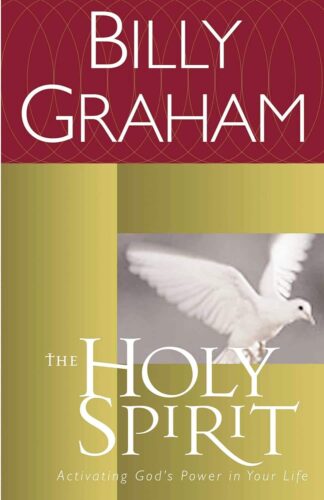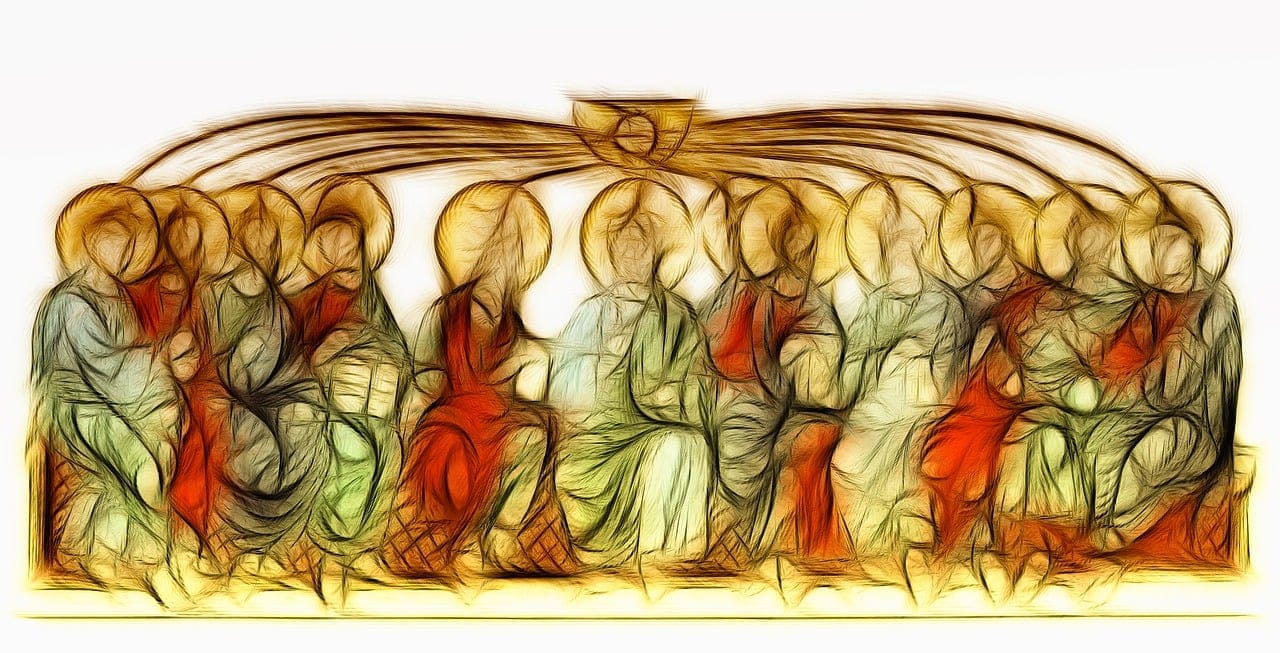 A Good Introductory Guide to the Holy Spirit
A Good Introductory Guide to the Holy Spirit
Author: Billy Graham
As part of the C.S. Lewis Fellows Program, we were tasked to read Billy Graham’s The Holy Spirit: Activating God’s Power In Your Life as part of the September study on the Holy Spirit. I was very excited for this study, since I think Christians often ignore or sideline the Holy Spirit. Most Christians certainly don’t have a good understanding of His role, and despite what we say, we often don’t see Him as being equal with the other two members of the Trinity: God and Jesus.
This was my first real encounter with Billy Graham. I know who he is (of course), but I had never heard one of his full speeches, much less read one of his works. The Holy Spirit is a deceptively simple book, with Graham leading his readers through a sometimes repetitive, but always honed and focused study that establishes and builds on basic knowledge, examines the gifts of the Spirit, highlights the evidence of the Spirit in a believer’s life (i.e. the fruits), and examines the Spirit’s role in the end times.
The Holy Spirit is an accessible book. One that is, on the face of things, easy to read and follow, but it has a lot of depth. As with most spiritual books worth the time, this is a book that should be re-read. It may seem simple, straightforward, but there are depths and details here that cannot be ingested in one reading, especially if you go the Audible book route and quickly work through the book. The chapters are a little too tied together to be used as a true devotional, but they do deserve a slower reading, contemplation, and re-reading. There’s more here than you think at first, despite the accessibility.
Graham starts with WHO the Spirit is. We know He is God, but we often miss the passages that show His involvement in creation and in the history of mankind. Graham notes that the Spirit was active and involved long before Pentecost. Graham highlights how the indwelling of the Spirit, which occurred at Pentecost and continues with Christians now, is different than the experience of Old Testament prophets, King David, Moses, and others who had a close relationship with God prior to Jesus’ incarnation and crucifixion. It’s an illuminating point and helps to truly establish the Spirit in the trinity – in the full creation and salvation of man.
Graham then shifts to talk about salvation and baptism with the Spirit. This section focuses more on what we are enabled to do – and how we are enabled to believe – blessings which come directly from the Spirit. This is a harder section, in my opinion. There is a fine line between the freedom of choice God has given us and our active role in seeking/accepting Him and the Holy Spirit’s involvement which, according to Graham, is the only thing that enables us to believe and exhibit faith.

Image by Gerd Altmann from Pixabay
This is where I always get confused. If we are not yet Christians, not yet indwelled, how then do we come to God? Evidently the Spirit must act outside of indwelling too, but to what degree, and has this degree changed from Old Testament times? Graham touches on this, but not quite enough. Our role in belief/faith is not passive, and often writings about the Holy Spirit makes it seem as though we are expected to do nothing, yet God makes it clear that our salvation comes through our agency in so far as we accept God’s gift.
Graham then talks about our struggles between the desires of the Spirit and the flesh and the difference between grieving the Spirit (a sin) and quenching the Spirit (THE unforgivable sin). This section stood out for me by fully explaining that age old concept that “the Body is the temple.” It brought home what this means in a real-world sense, and how through our evil actions we can grieve and hurt the Spirit within us. Graham’s descriptions highlight the seriousness of this offence, and the subsequent agony of God.
Finally, the narrative discusses spiritual gifts. The argument is that God has given us each a gift (or multiple gifts.) Some of these gifts are flashy (speaking in tongues) and some are less glamorous (administration). I admit that some of the gifts blur together – for example, what is the difference between the gift of being a missionary, a pastor, and a teacher? They all seem similar, and Graham’s descriptions didn’t help me get a true sense of each gift.
Graham did handle the more dividing gifts (speaking in tongues and faith healing) very well, neither discounting nor accepting them at face value. It’s a very well thought out, reasonable approach, one that rings true and is bolstered by both faith and logic.

Image by Gerd Altmann from Pixabay
The final portion of the book talks about discernment – how do you know the Spirit is in you? Again, we are delving into the simpler aspects, the ones with which we are more familiar. If we are Spirit filled, we exhibit good fruit – we better understand God’s majesty, we view our sinfulness with new horror, we repent, we feel joy in salvation, we depend on the Holy Spirit, and so forth.
The book concludes with the prominence of the Spirit during the end times, which is a somewhat strange conclusion, but still in line with the logic and faith of Graham’s argument.
Overall, this is a great book to start learning about the Holy Spirit. It captures His importance, divinity, role in the world and our salvation, our need of Him, and the gifts that He gives, which in turn enable us to give God glory and lead our fellow man to the joy of salvation in Christ Jesus. Recommended.
– Frances Carden
Follow my reviews on Twitter at: https://twitter.com/xombie_mistress
Follow my reviews on Facebook at: https://www.facebook.com/FrancesReviews
- Book Vs Movie: The Shining - April 6, 2020
- Thankful For Great Cozy Mysteries - December 13, 2019
- Cozy Mysteries for a Perfect Fall - October 20, 2019


